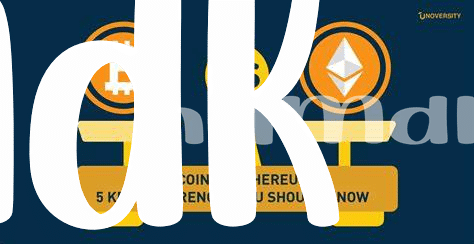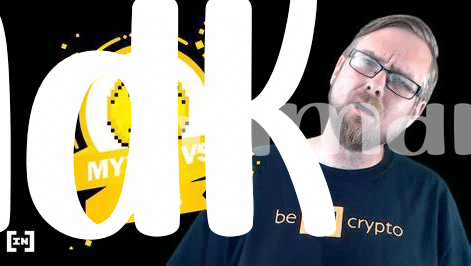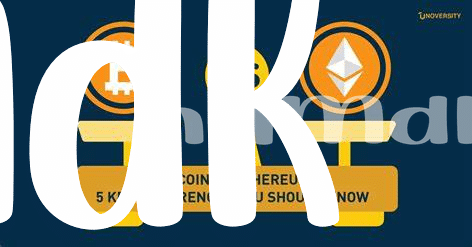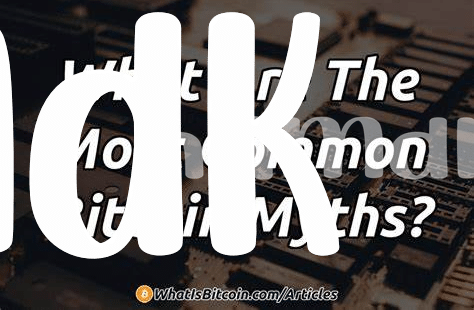🌍 What’s the Big Deal about Decentralization?

Picture a world where you can be part of a giant network, like a community garden, but instead of growing tomatoes, you’re growing and sharing bits of information and money. That’s the magic of decentralization. It’s like having many cooks in the kitchen, but instead of spoiling the broth, it actually makes it richer and more secure. By spreading out the power, no single person or group can easily mess things up for everyone else. This means everyone who joins in gets a say, kind of like voting on what vegetables to plant next in the garden.
Decentralization isn’t just a cool idea; it’s the backbone of some pretty big systems on the internet, especially in the digital money world. It’s like having a piggy bank that no one person can control or take money from without everyone else agreeing. This way, instead of one big bank or company calling all the shots, it’s more like a team effort. Plus, it can make these systems really tough like a fort, keeping out hackers and making sure everything runs smoothly.
| Feature | Description |
|---|---|
| Security | Spreading out control makes it harder for hackers to cause harm. |
| Democracy | Everyone gets a say in how things are done, leading to fairer decisions. |
| Resilience | The system can keep running smoothly even if one part has a problem. |
⚖️ Ethereum’s Democratic Approach to Decision-making
Imagine if making decisions was like creating a giant group project where everyone’s voice matters. That’s kind of how Ethereum does its thing. Instead of one single person calling the shots, Ethereum welcomes opinions and ideas from anyone who wants to participate, like a massive online democracy. This means when big decisions need to be made, such as updates to the system or changes to how things work, Ethereum asks its community for input. This democratic approach ensures that no single entity can solely dictate the platform’s future, aiming for a more fair and inclusive system. It’s a stark contrast to more rigid structures, shining a light on Ethereum’s commitment to staying open and adaptive. For a deeper dive into how Ethereum stays resilient amidst challenges and how its approach compares to Bitcoin, check out this detailed analysis here.
🔐 Bitcoin’s Hands-off Governance Model Explored

Imagine a world where decisions are made not by a select few, but by a collective consensus of everyone involved. This is the heart of Bitcoin’s approach to governance. Unlike Ethereum, where decisions can be driven by debates and democratic votes, Bitcoin takes a more laissez-faire attitude. Changes in Bitcoin’s world come about through a process more akin to natural selection: ideas compete for survival, and only the strongest make it through. This “hands-off” strategy might sound like leaving things to chance, but it’s built on a strong foundation of trust in the community and the underlying technology. Everyone’s voice can be heard, but a change only happens if there’s overwhelming agreement. This method has its fans and critics, but it’s undeniable that it has kept Bitcoin steady through the ups and downs of the digital age. 🌐✨
🛠 Differences in Technical Upgrades: Forks and Beyond

When we look at how Bitcoin and Ethereum handle updates and changes, it’s like comparing apples and oranges. Bitcoin prefers a more reserved method, keeping changes minimal to avoid rocking the boat too much. It’s kind of like an old, wise tree that doesn’t want to bend too much in the wind. The interesting part is when Bitcoin does decide to make a change, it can lead to what’s called a “fork.” This is a fancy way of saying that the blockchain splits into two paths: one that follows the new changes and another that stays with the old ways. It’s a bit like a train switching tracks. For a deeper dive into how these forks can influence the market, especially regarding cold storage technologies, check out the effects of bitcoin forks on the cryptocurrency market versus ethereum.
On the flip side, Ethereum is more like a bustling city, always evolving and building new infrastructures. Its governance model allows for quicker adaptations and improvements, making it more agile in the face of new challenges. This difference means that Ethereum can introduce new features and adjustments more smoothly without causing a split in its community. Both models have their merits and challenges, sparking a lively debate on which approach better serves their users 🚀🌐.
🗣 Community Voices: Who Really Holds the Power?
In the world of digital currencies like Ethereum and Bitcoin, we often wonder who’s really steering the ship. Is it the tech gurus coding away at new features, or maybe the big investors with pockets deep enough to sway market trends? Interestingly, it seems like the voice and power truly belong to the broader community – the everyday users, enthusiasts, and believers in blockchain technology. This diverse group plays a pivotal role, not just as passive observers, but as active participants influencing the direction and governance of these cryptocurrencies. Through forums, social media, and community votes, their opinions and decisions help shape the future of Ethereum and Bitcoin. Whether it’s pushing for changes, voicing concerns, or proposing new directions, the collective voice of the community is a force that can sway decisions at the very top.
| Currency | Governance Influence |
|---|---|
| Ethereum | Community proposals & voting |
| Bitcoin | Community feedback & consensus |
This democratic participation proves that in the realm of digital currency, power isn’t just held by a select few, but is distributed among many, reaffirming the core principle of decentralization that Ethereum and Bitcoin were built on.
💡 Future Outlook: Is One Model Better?

Looking to the future, it’s a bit like asking if apples or oranges taste better when we compare Ethereum’s democratic stance with Bitcoin’s more laid-back approach. Both have their champions and critics, lighting up discussions in every corner of the digital world. For some, Ethereum’s method of letting its community have a say in changes feels more inclusive, like having a voice in a vast, bustling city. On the other side, Bitcoin’s less hands-on governance is admired for its stability and the way it sticks closer to its original vision, much like a steadfast lighthouse guiding ships home. But is one truly better than the other? It might be too early to call. Each brings something unique to the table, serving different needs and philosophies. As we navigate through this journey, it’s important to remember that the landscape of digital currencies is ever-evolving. Just like in a vast ecosystem, diversity could very well be the key to resilience and innovation. For those wanting to explore deeper, understanding how each blockchain safeguards its treasures is essential. For insights into bitcoin’s influence on popular culture and media versus Ethereum, it’s clear that both have carved distinct paths in our digital age, offering varied lessons on progression, security, and community involvement.
